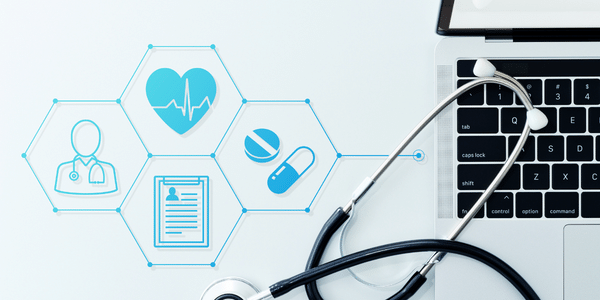Address
304 North Cardinal St.
Dorchester Center, MA 02124
Work Hours
Monday to Friday: 7AM - 7PM
Weekend: 10AM - 5PM
Address
304 North Cardinal St.
Dorchester Center, MA 02124
Work Hours
Monday to Friday: 7AM - 7PM
Weekend: 10AM - 5PM

Let’s journey today into an intriguing question that has piqued many minds, namely, what can AI do for healthcare? As it turns out, It’s not just about what AI can potentially achieve but how it’s already dramatically reshaping the sector.
Artificial Intelligence has been influencing the medical field for quite some time. It serves as the unseen hand, efficiently connecting disparate hospital departments, managing complex prescriptions, taking over routine tasks, streamlining data management, and even playing a role in drug development. The entire sector is currently undergoing a dramatic transformation with this new technology at the helm.
AI is nothing new in healthcare. The recent global pandemic has laid bare numerous vulnerabilities in many of our systems. As a result, institutions are now leveraging AI and Machine Learning (ML) to provide improved care, cut costs, and enhance efficiency.
What’s more, with the aid of AI, organizations can continuously evaluate and optimize workloads, network dependencies, and automation prospects.
Moreover, AI supports a trend towards automation AI, where routine tasks can be carried out more efficiently. As the growth of AI continues, we will see many industries reshaped.
So, how can AI improve healthcare in the future? The opportunities are vast and rapidly evolving. It can continuously evaluate and optimize workloads, network dependencies, and automation prospects within organizations.
A recent Forbes article provides a wealth of instances and AI in healthcare examples. These include:
Let’s dive deeper into some of these examples to see how AI is used in healthcare.

AI does more than just collect, store, and analyze essential data. Similar to how ChatGPT AI writing assistant works, it can assess patient data and highlight critical points for clinicians. This rapid, error-free access to patient information streamlines doctors’ tasks, enabling them to work more effectively. AI doesn’t stop there. The tech can alert clinicians to potential disease risks and help interpret medical images, integrating them into the process for comprehensive decision support. This is one of the key benefits of AI in healthcare.

For over 50 years, technology has had a prime focus on disease diagnosis and treatment. Modern AI goes a step further. Analyzing patient records, clinical research, and professional expertise ML can help medical professionals develop tailored treatment plans.
This transformation has implications for the wider AI in business landscape as well, showing that it can be a versatile tool for many industries.

Although less groundbreaking than patient care, AI’s application in hospital administrative areas significantly increases productivity and efficiency. Processes like claims processing, clinical documentation, revenue cycle management, and medical record management are all being streamlined. It’s a game-changer, saving time, money, and resources.
More than just a bandaid, AI is the cure to many bottlenecks and problems in healthcare. With the help of artificial intelligence, task management data can be continuously evaluated and improved.
So, I quickly compiled this awesome list of 30 advantages of using technology in healthcare. It’s pretty impressive, right? But here’s the thing: this list is just the beginning. As the industry embraces AI more and more, we can expect it to keep growing and expanding, with even more benefits on the horizon.
This list also highlights the amazing benefits of AI.
As technology evolves and new medical applications are discovered, doctors and nurses will be able to provide better guidance, support, and feedback. In addition, extensive data analysis powered by AI will enable providers to better understand the trends and demands of their patients.
It can read images and scans, make inferred clinical diagnoses, develop personalized treatment plans, and improve care delivery. AI could reduce preventable human error by recognizing patterns and anomalies, assisting surgeons, and predicting patient readmissions. In short, the possibilities are vast and growing.
Medical costs can be incredibly high, and I’m sure not many would disagree with that statement. In fact, Insider Intelligence revealed a fascinating finding: administrative tasks alone contribute to a whopping 30% of total medical costs. Can you believe that? Just the paperwork and bureaucracy eat up such a huge chunk of expenses.
30% of healthcare costs are associated with administrative tasks.
Insider Intelligence
AI promises to revolutionize this enormous cost burden, ushering in efficiency and breakthroughs we can only imagine.
At AI Dev Lab, we’re here to help you implement the latest technology. By doing so, we can not only improve patient care but save time and resources. Join us as we explore what can AI do for healthcare, molding a future where technology and health coalesce seamlessly. With the right AI strategy, we can make significant strides in every facet of medical care.
Stay curious,
Jason